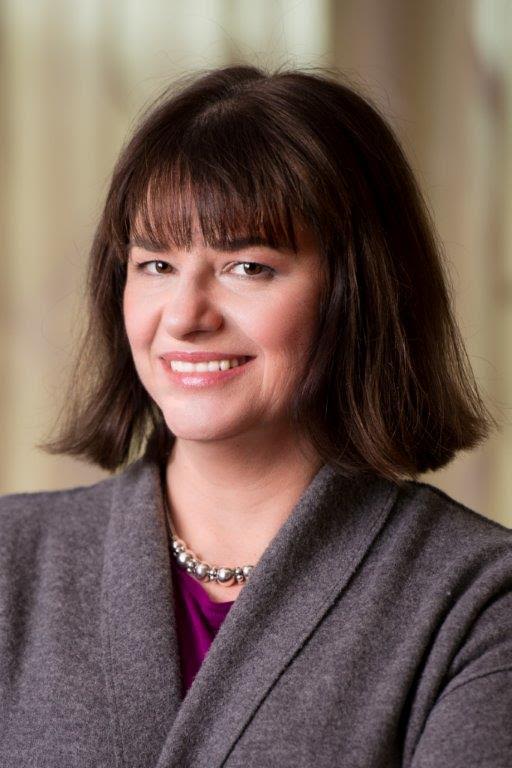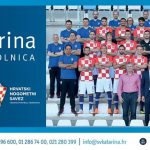October 9, 2019 – The recent ACAP Croatian diaspora conference in Cleveland included a medical tourism panel, the latest strengthening of medical tourism ties between international Croatians and the homeland. An interview with panelist Jeana Havidich, MD, PhD.
Dr. Jeana Havidich is a board-certified pediatric anesthesiologist at the Children’s Hospital at Dartmouth in Lebanon, New Hampshire. She is a graduate of The Dartmouth Institute and her research focuses on outcomes and health care delivery science. She is active in medical education and participates on national quality and safety initiatives.
1. You were a recent panelist on the medical tourism panel at the (Association of Croatian American Professionals) ACAP conference in Cleveland. How was the conference in general, and the panel in particular?
The conference was a great success. The enthusiasm generated was contagious and continues to grow. The speakers were diverse, engaging and inspiring. The address by President Kolinda Grabar-Kitarovic was a very special moment for all who attended.
I am very excited about the amount of interest and support the Medical Tourism Task force received during and after the conference. The moderators did a great job asking questions and engaging the audience. It was great to have representatives from Croatia and the Croatian government inform the audience of current activities in Croatia.

2. As an American of Croatian heritage living in the States, give us a perspective of how Croatian medical tourism is perceived, especially in the diaspora? Is it coming onto people’s radar? What are the key factors which will persuade the diaspora (and ultimately Americans) to travel to Croatia for medical treatment?
One of the panel’s biggest accomplishments was to inform the diaspora of the activities that are ongoing in Croatia relating to medical tourism. I don’t believe medical tourism received much attention in the US until recently. The concept of medical tourism is more popular in Europe but is gaining traction in other countries. Although estimates are variable, the industry is expected to grow 10 – 25% over the next ten years.
The question regarding identifying key factors that will persuade the diaspora and Americans to travel to Croatia is very interesting. There are different reasons for different people. Access and cost are two of the main reasons patients travel for health care. The opportunity to receive high quality care at a lower cost is attractive to many patients. For others, there may be services not offered locally or covered by insurance. In the U.S., preventative care is typically not covered by most insurance and wellness vacations are becoming increasingly popular. Globalization has affected virtually all industries – and health care is no exception.
3. You are involved in an interesting project, the OnSite Global consulting program, whereby MBA students at an Ivy League School will be coming to Croatia this fall to do a project to develop medical tourism in Croatia. Can you tell us a little about the project and how it came to be?
Almost three years ago, I met with the director of the global onsite consulting program to obtain her insight and advice. Since then, I kept her apprised of the progress the ACAP Taskforce has made. She was impressed with our accomplishments and thought we were at a stage where her team could help. To determine the interest level in Croatia, Dr. Steven Pavletic and I met with leaders in the Croatian government and in the Medical Tourism industry in Croatia in May 2019. We were excited they were willing to work with us on this project. I relayed this information to the consulting group, and we started planning our next steps.
We are fortunate to have the consultants involved. The global consulting program is quite competitive. In order to apply to this program, individuals must have a minimum of five years’ experience in consulting or international business. We (ACAP MTTF) developed an Integrated Medical and Wellness program we believe will attract Americans and the diaspora. Our key question is how to implement this program that will serve as a foundation to promote and further develop medical tourism in Croatia? Answering that question will require extensive research. In addition to their preparatory work, the team will spend three weeks in Croatia in December 2019– conducting research, interviewing key stakeholders and government officials – to answer that question. They will present their findings in February 2020.
(To learn more about this project and to donate – only 5 days left – click here.)
4. What are your hopes and expectations in terms of project outputs? Will this be an ongoing annual occurrence?
This project is time-limited. The consulting team will deliver a market analysis, propose a business plan and recommend next steps. My hope is this will serve as a foundation for further growth and development of medical tourism in Croatia. We are looking forward to partnering with Croatians to develop medical tourism. I am very excited to work on this project. It will be intense but well worth it.
5. Strengthening ties and cooperation between Croatia and the USA can only be beneficial to Croatia’s medical tourism industry. How much connection is there at present, and how do you see this developing?
The connection continues to grow stronger. In 2016, Dr. Halar and Dr. Pavletic inspired ACAP members to work with Croatia to develop and promote medical tourism. In a short period of time, the Task Force has grown to over 140 individuals from all professions – physicians, business leaders, health care professionals, lawyers, and government officials – which makes us unique and talented organization. This diversification gives us strength. Given the enthusiasm at our recent conference, I only see the connection growing.
6. ‘Potential’ is a common word used when describing Croatia and its medical tourism industry. Several experts have said it has the potential to be in the top ten countries in the world in 10 years if its stakeholders come together. Do you share this view, and what are the important next steps to get to the next level?
Absolutely. Thoughtfully implemented, I believe Croatia has the potential to be in the top five destinations for medical tourism in the world. Croatia possesses natural beauty, has a strong history of preventative medicine and wellness programs, and is one of the top tourists’ destinations in the world. The next steps depend on the type of programs offered, but stakeholders including government officials, leaders in the public and private health care sector, and supporting industries are needed to devise a strategy that will ensure Croatia’s success. There are many parts to this puzzle, but I believe Croatia is well-positioned to be a leader in the industry.
7. There seems to be a great energy between ACAP and the business community in Croatia in recent months. Can you tell us a little about that?
It truly is inspiring and an honor to be part of this process and the ACAP organization. ACAP is composed of volunteers whose mission is to promote Croatia and Croatian professionals. The numerous hours of work willingly and enthusiastically ‘donated’ by members in this organization is incredible. And it’s not just first-generation Americans, it’s second and sometimes third. For me, this is an opportunity to give back to the Croatian community that supported me going to college. With that support, I was able to get accepted to medical school. I have spoken to many others in ACAP with similar stories.
For the latest on the Croatian medical tourism story, follow the dedicated TCN section.









